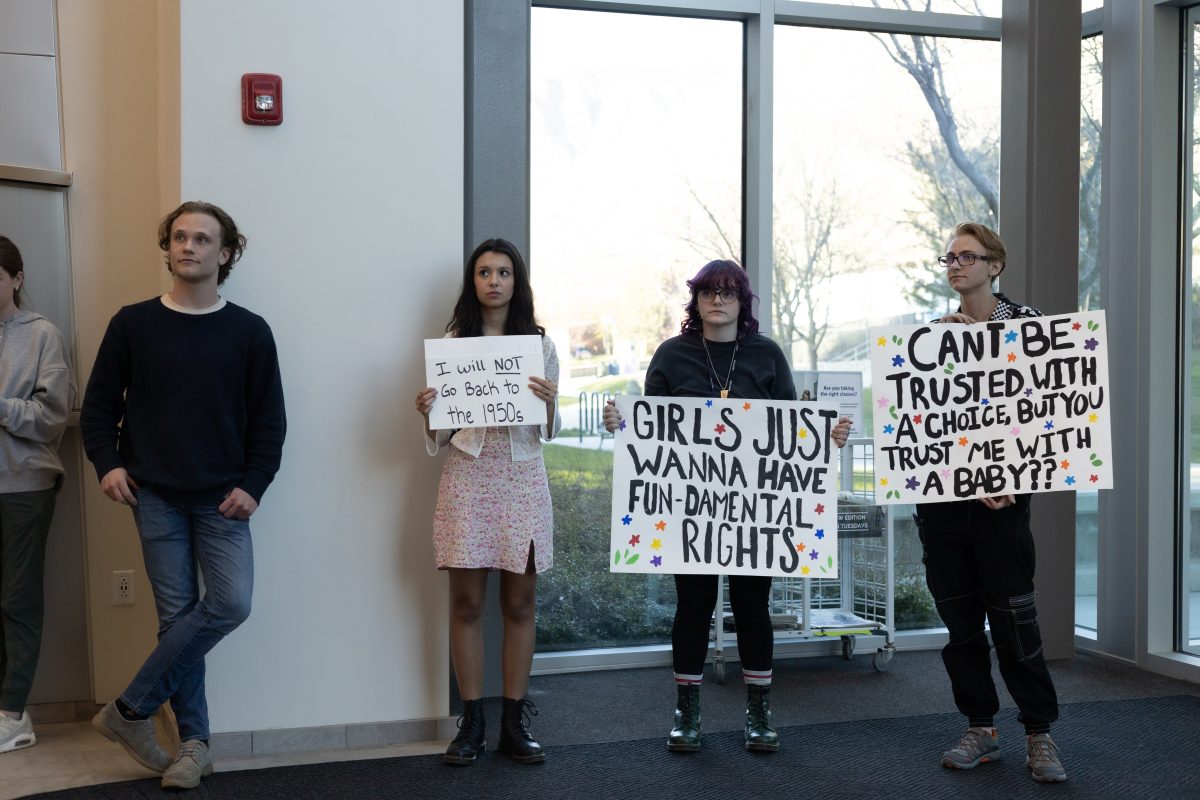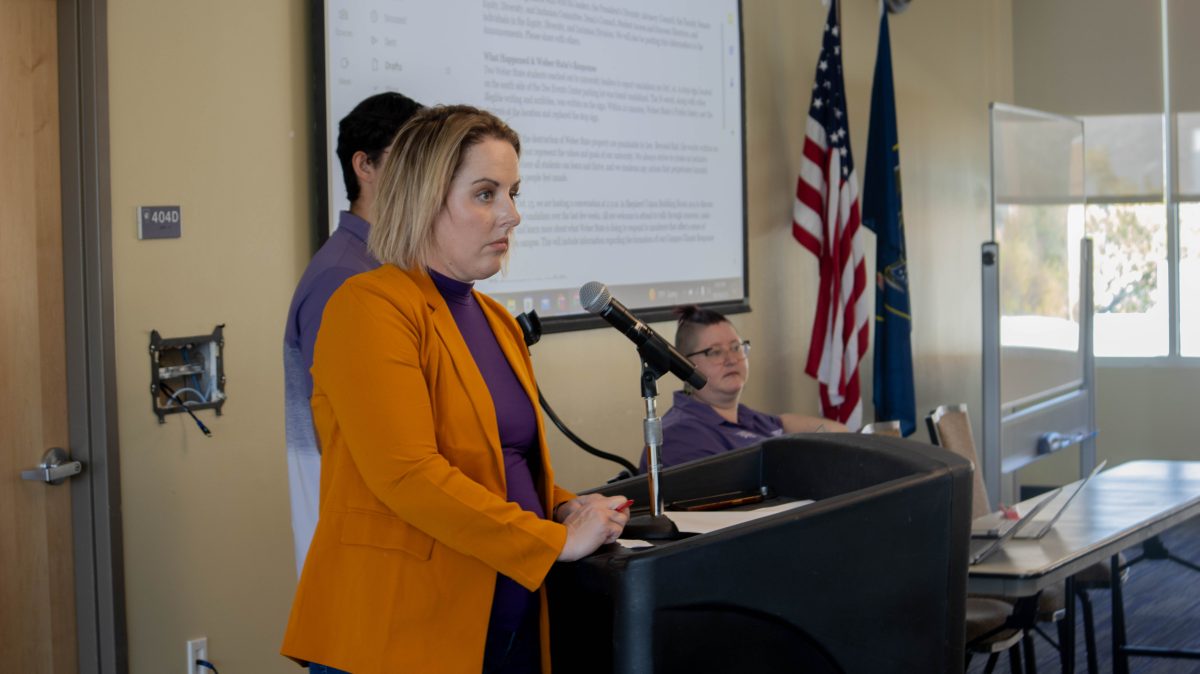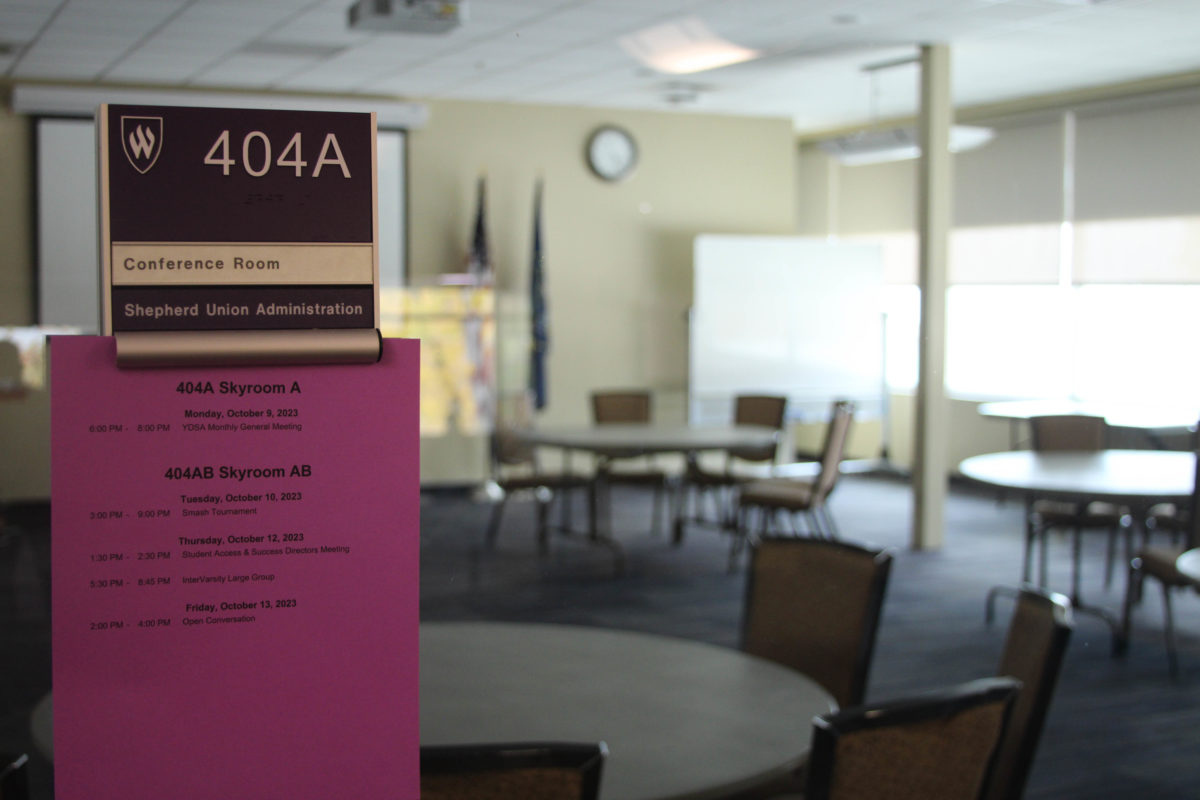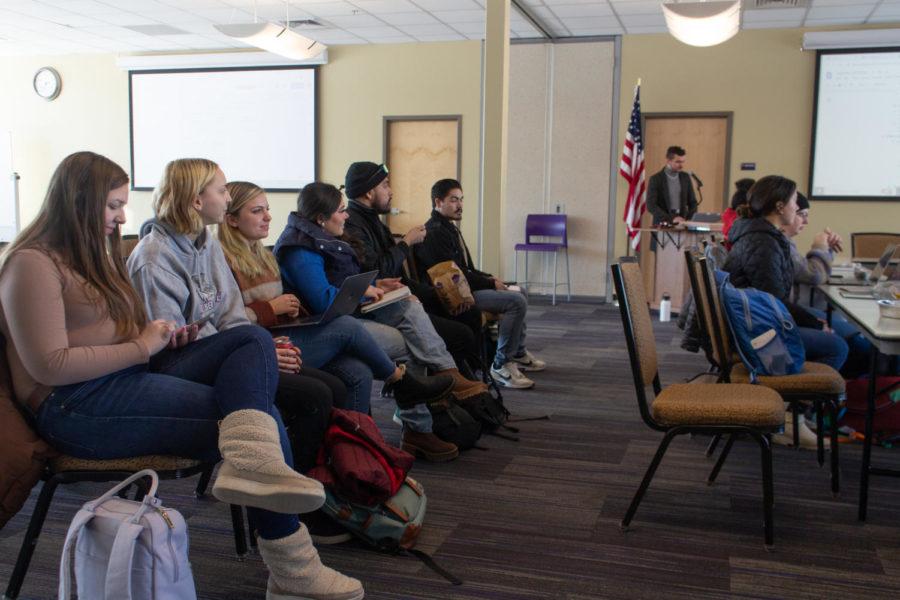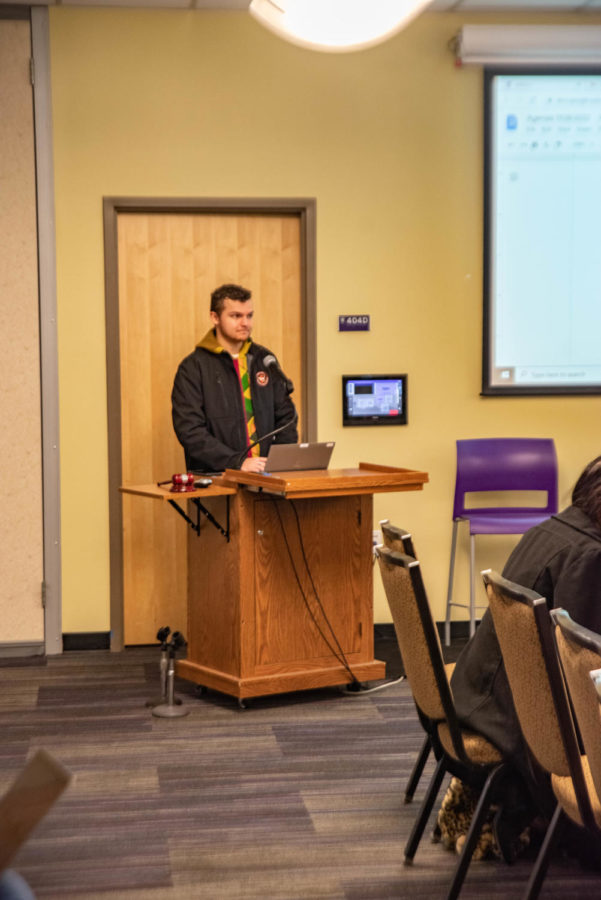
Students who take a smoke break between classes might have to congregate in specific areas, according to a new smoke-free zone policy recommended in yesterday’s faculty senate meeting. The smoking policy, along with an idle-free zone policy the Environmental Issues Committee presented, has to go through further process before it will be implemented at Weber State University.
The student senate originally hosted the proposed idea of a completely smoke-free campus policy in 2011, holding open forums that more than 400 people, mostly students, attended. Then in 2012, the Environmental Issues Committee, along with WSU Facilities Management, voted to pursue smoke-free areas as opposed to a campus-wide ban on smoking.
Although the policy is now out of student hands since the student senate passed it, Brady Harris, the legislative vice president and student senate president at WSU, said the students’ voices have been heard, and now it is up to the President’s Committee and the Board of Trustees to turn this recommended policy into an official reality.
“I’m excited to see it happen,” Harris said. “This all came up because two or three students came and complained to the senate that they didn’t want to walk through tobacco smoke two or three years ago . . . As long as we stay with it, it happens.”
The faculty senate voted on the smoke-free zone policy with a majority 23-8 vote, with one abstaining. The policy’s purpose, as taken directly from the document, is “to establish smoke-free zones and to govern the use of tobacco products in those zones, including cigarettes, cigars, pipes, or any other form of lighted tobacco product.”
This policy also extends to e-cigarettes. Students and staff who smoke e-cigarettes, regardless of the vapor or nicotine emitted, will also have to comply with the policy standards and stay within the confines of the approved smoking areas. The Utah State Legislature passed House Bill 245, which banned smoking hookah and e-cigarettes in public indoor places, and Governor Gary Herbert signed it, in 2012. WSU’s smoking policy will adhere to and align with this legal standard.
Although WSU hopes to achieve self-compliance through education and proper signage, the violation of the policy may result in the university police ordering the offender to either stop smoking or leave campus.
The smoke-free zone policy met some opposition and debate during the faculty senate meeting. Vikki Vickers, a professor in the history department, was one of the eight senators who voted against the smoke-free zone policy and the idle-free zone policy as written.
“The smoke-free policy allows smoking, which is nothing to curb air pollution,” Vickers said. “I like the idea of them, but I think they need revision.”
Vickers also said that, although she isn’t in favor of the policies because of how they are written, she would wait to see how they work practically in the real world. She said she anticipates change and modification based on how these policies are implemented.
Hal Crimmel, the chair of the Environmental Issues Committee, with the assistance of Shaun Hansen, also presented the idle-free zone policy to the faculty senate. This was passed with a 32 vote in favor for the policy, and only two senate members were against it.
The idle-free zone policy would govern the idling of vehicles on campus and is designed to help improve the air quality on campus and throughout the Wasatch Front. The WSU Climate Action Plan, approved by then-president Ann Millner, is committed to making WSU carbon-neutral by 2050. This new policy is meant to help accomplish that goal.
Crimmel said this idle-free policy was in line with what Park City, Salt Lake City and Utah State University are executing. Facilities Management has already adopted a no-idle policy for all of its campus vehicles.
“The idle-free proposal is a way for us to begin reducing emissions not under control of the university,” Hammel said. “. . . We’d like for them to get out of their car, come into the student center, come into the academic buildings and participate in campus life and get away from that commuter mindset.”
These policies can take weeks, even months to go through the entire process before they become official WSU policy. Brian Rague, acting chairman of the faculty senate, said the policies could take until fall semester to go into effect.



